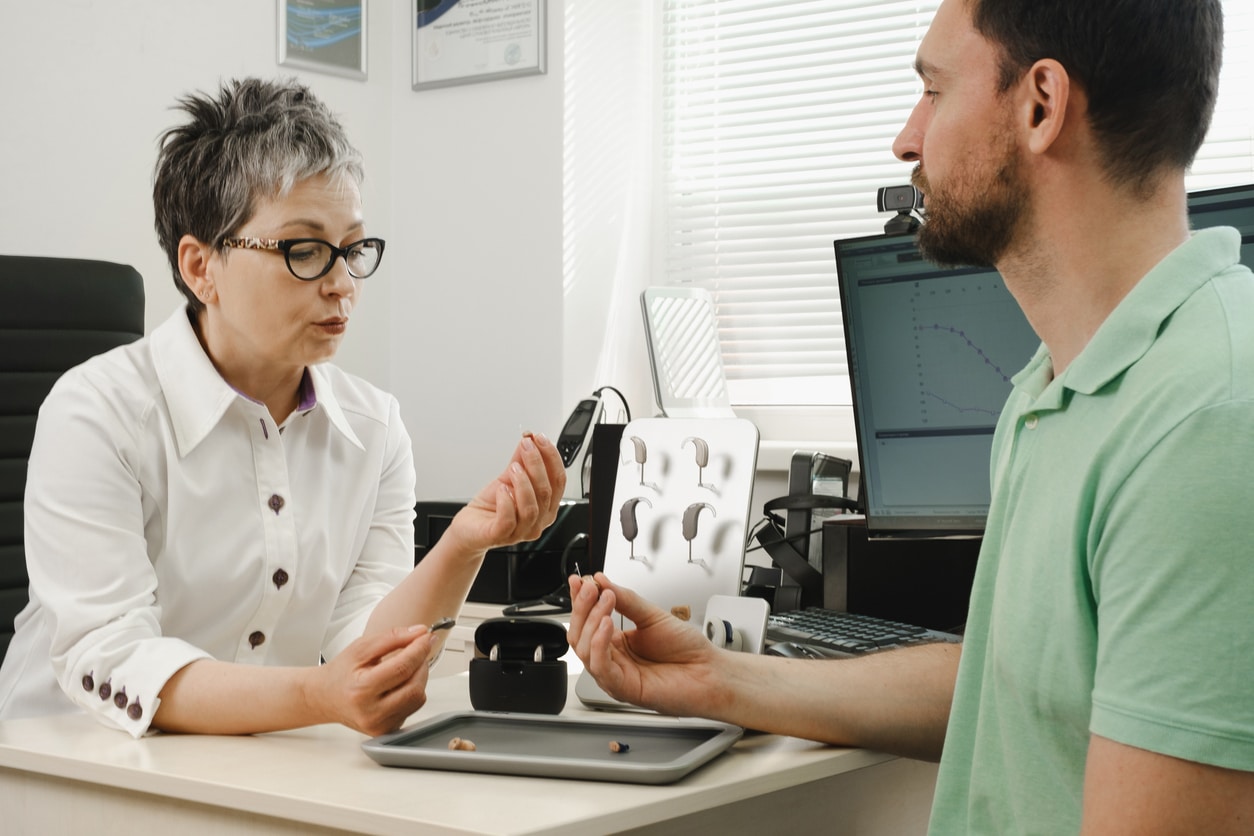Hearing aids are a significant investment, and you want to take care of them. Properly caring for your hearing aids can significantly extend their lifespan. That said, hearing aids are small, delicate pieces of technology and are susceptible to damage, especially since they get used heavily daily. Below are some common hazards that can cause damage to your hearing aids if you don’t exercise caution, as well as how to avoid them.

Dirt and Earwax
Dirt, debris and earwax can build up on your hearing aids and cause some major damage. Earwax, in particular, can clog the microphone, jam the speaker and lodge itself in the tubing, causing all these elements to malfunction or break.
To take care of this, clean your hearing aids regularly. Do a quick hygiene routine when you take them out before bed every night, and do a thorough cleaning once a week or every other week. This will remove most dirt and earwax from the surfaces of your hearing aids, reducing the likelihood of buildup.
Moisture
Water damage is a common cause of hearing aid malfunctions. Just like your smartphone or laptop, hearing aids and water don’t mix. Water damage can cause microprocessors and other digital components to short out or malfunction, and it can cause the battery to corrode.
Avoid getting your hearing aids wet whenever possible. Don’t wear them while swimming or showering, and be mindful of humidity levels. Store them in a dry place—not a humid one, such as the bathroom—and use a hearing aid case. If you do get them wet, use a hearing aid dryer to remove moisture rapidly.
Extreme Heat
High temperatures can damage hearing aids by causing the components to melt or warp. Heat makes things expand, and the casing of your hearing aids may expand, affecting their fit and how well the pieces fit together. Extreme heat can also decrease battery life.
If temperatures are high or if you’re standing in direct sun, take measures to shield your hearing aids from the heat by wearing a wide-brimmed hat or staying indoors if possible.
Dropping Them
Despite your best efforts, you can’t prevent every tragedy. Hearing aids are small and lightweight, so it’s easy to drop them. Dropping your hearing aids (from any height) can damage them, especially if they land on a hard surface.
Handling them roughly can also cause physical damage. This could look like forcing pieces together, twisting the tubes or handling them roughly while cleaning. Any of these actions could cause a piece to break off or crack.
We recommend removing or inserting your hearing aids while standing or sitting over a soft surface, like a towel, especially at first, when you’re still getting used to handling them. When you take them out for any reason, store them in a hearing aid case to provide extra protection in case they are knocked off a table or stepped on.
Getting Your Hearing Aids Repaired
Southwestern Hearing & Balance has an in-house repair service for your hearing aids. If you’ve encountered any of the hazards listed here and noticed a change in your hearing aid functionality shortly thereafter—such as distorted sound or shortened battery life—bring them to us for a service appointment. Leaving the issue unaddressed doesn’t make it go away. Call us today to make an appointment and protect your investment.
